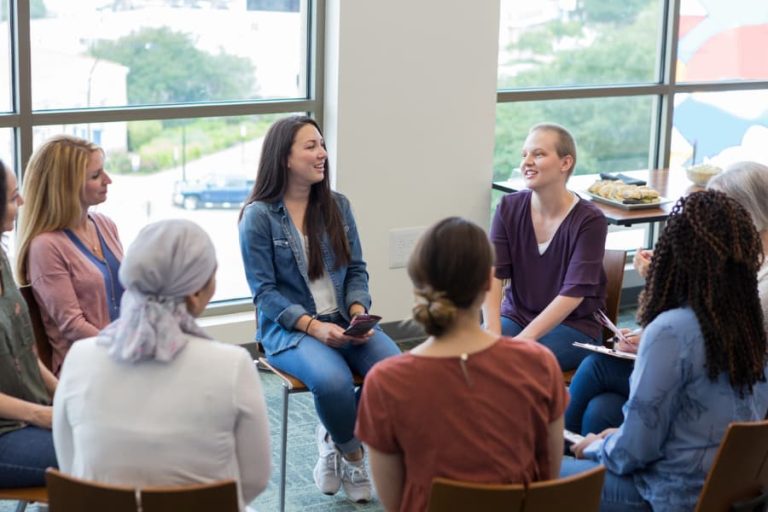

Coping With a Cancer Diagnosis in NJ, CT, MD, and the Washington, D.C., Area
There is no right or wrong way to feel upon learning that you have cancer. Some people who receive a cancer diagnosis want as much information as possible, while others might feel overwhelmed and not want to delve into the details. Coping strategies are the behaviors and thought patterns that help a person deal with stressors. After being diagnosed with cancer, healthy coping strategies can help a patient maintain a positive mindset. Coping mechanisms are important for a patient’s family and friends, as well.
The experienced team at Regional Cancer Care Associates (RCCA) offers resources and information for patients with cancer throughout New Jersey, Connecticut, Maryland, and the Washington, D.C., area. Learn more about some of the coping strategies patients and their loved ones can use.
Coping Strategies for Patients with Cancer
After receiving a cancer diagnosis, many patients feel a range of emotions. They might be angry, scared, or in denial. Most patients know that cancer treatment will take a physical toll on the body, but it’s important to be mindful of the mental and emotional impact, too.
Choose How to Share a Cancer Diagnosis
How and when patients choose to share their cancer diagnosis with others is up to them. Some individuals want to reach out for support right away, while others may want to come to terms with their feelings first.
Keep in mind that others’ reactions are unpredictable. Some friends and family members will know the appropriate way to provide support, while others may not. Individuals with cancer do not need to tell everyone right away, and they have the right to decide how much detail they want to share.
Ask for and Accept Support
Friends and family will want to know how they can provide support. But it can be hard for the patient to ask for what he or she needs and accept help when it is offered. Patients with cancer should remember that asking for help is a sign of strength, not weakness. Whether it is a ride to a doctor’s appointment or help around the house, asking loved ones to provide concrete assistance is OK.
Recognize Signs of Depression
Feelings of sadness are a normal response to cancer. Some patients feel sad from time to time, while others may struggle with more intense emotions. Be on the lookout for signs of depression, such as:
- Feeling emotionally numb or empty
- Changes in sleep patterns or appetite
- Losing interest in things one would normally enjoy
Patients who are experiencing these symptoms should talk with their primary care physician or medical oncologist.
Connect With Other Patients
Support from friends and family is valuable, but it may be difficult for people who have not had cancer to understand a patient’s experience. For some patients, it is helpful to talk with individuals who are also going through cancer treatment or who are in remission. Virtual or in-person support groups can be an empowering source of information and connection.


COPING STRATEGIES FOR LOVED ONES
A cancer diagnosis does not just affect the patient. His or her family and friends are impacted, as well. A spouse, partner, or parent of a person with cancer may act as a caregiver during cancer treatment or serve in an advocacy role. This can be rewarding, but also stressful. Caregivers need to find coping strategies, as well, such as:
Practicing Self-Care
When caring for a loved one who has cancer, an individual may put his or her own needs on the back burner. But practicing self-care is crucial. Caregivers need to take time to grieve, accept their limitations, and prioritize their physical and mental health.

Finding a Support Network
Just as patients with cancer can benefit from joining a support group, so can friends and family members. Learning that a loved one has cancer is overwhelming. Talking with others who have had similar experiences can help caregivers feel less alone.
Being Present
Cancer treatments such as chemotherapy can be physically and emotionally draining for a patient. Understandably, friends and family members want to do something to ease the patient’s burden. While there are certainly ways to be helpful, such as cooking meals or providing childcare, often the best thing a loved one can do is simply to be present, to listen without judgment, and to offer a safe space for a patient to share emotions.
Learn More From Regional Cancer Care Associates
Patients in New Jersey, Connecticut, Maryland, and the Washington, D.C., area can receive expert, cutting-edge care at Regional Cancer Care Associates. The medical team also provides patient and caregiver education and support to help individuals and their loved ones navigate treatment after a cancer diagnosis. With state-of-the-art technology and innovative therapies, Regional Cancer Care Associates treats a wide range of cancers and blood disorders. Patients can receive personalized care at more than 20 convenient, community-based locations. To learn more, contact Regional Cancer Care Associates to request an appointment today.